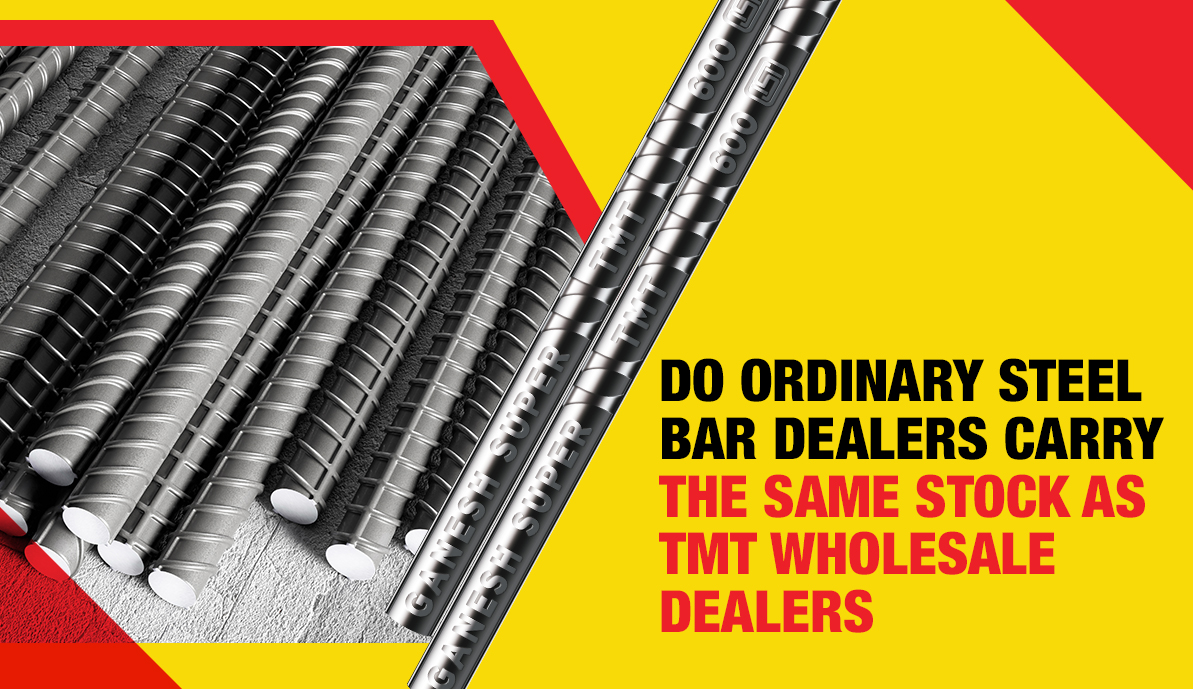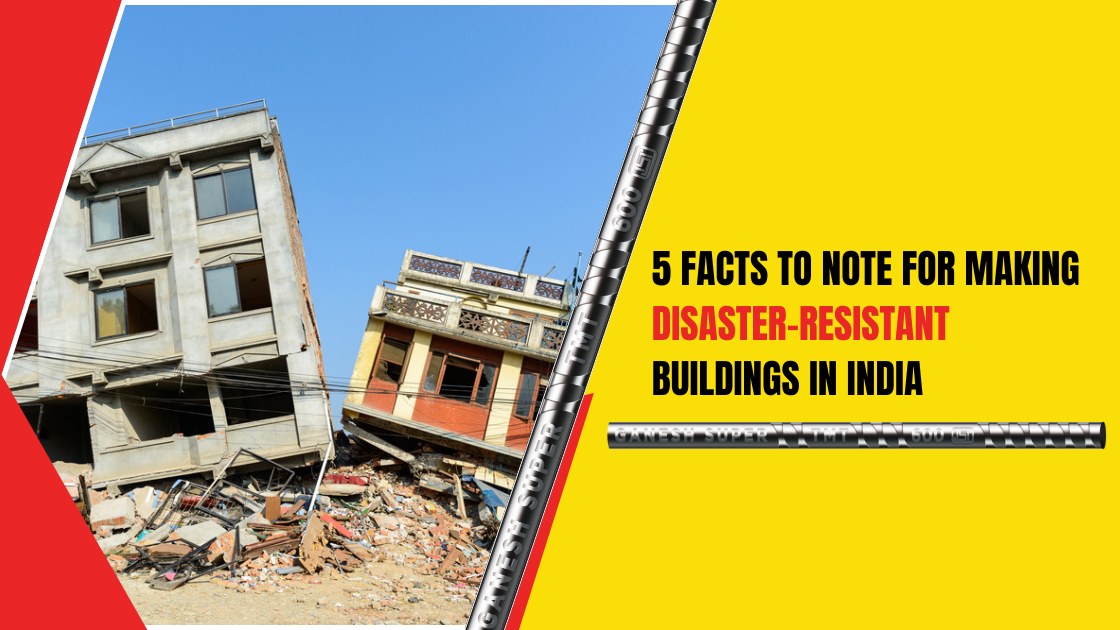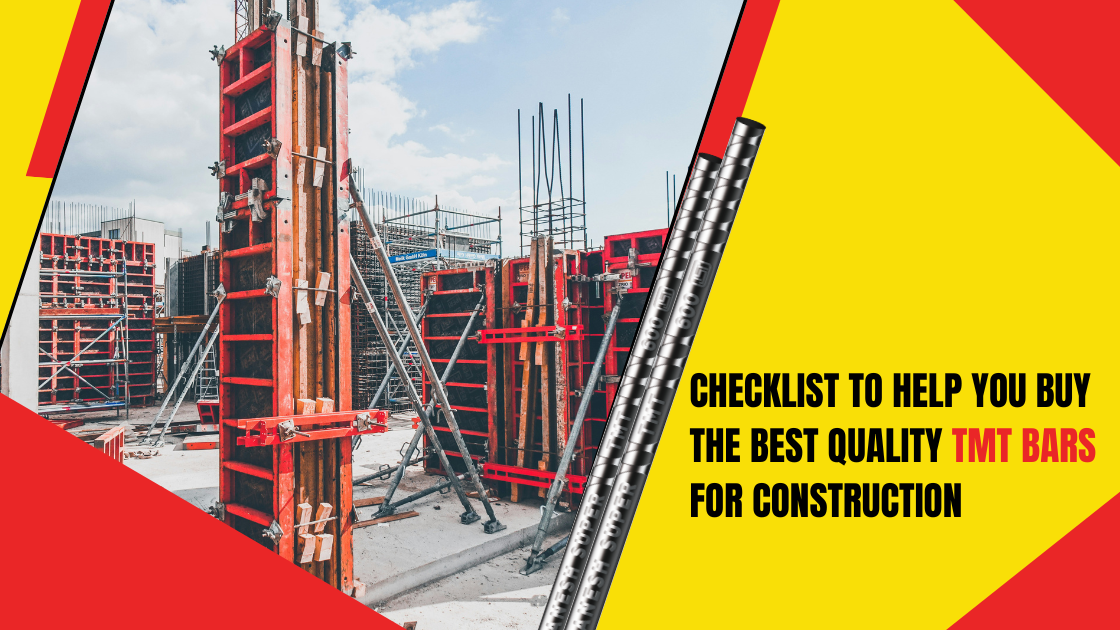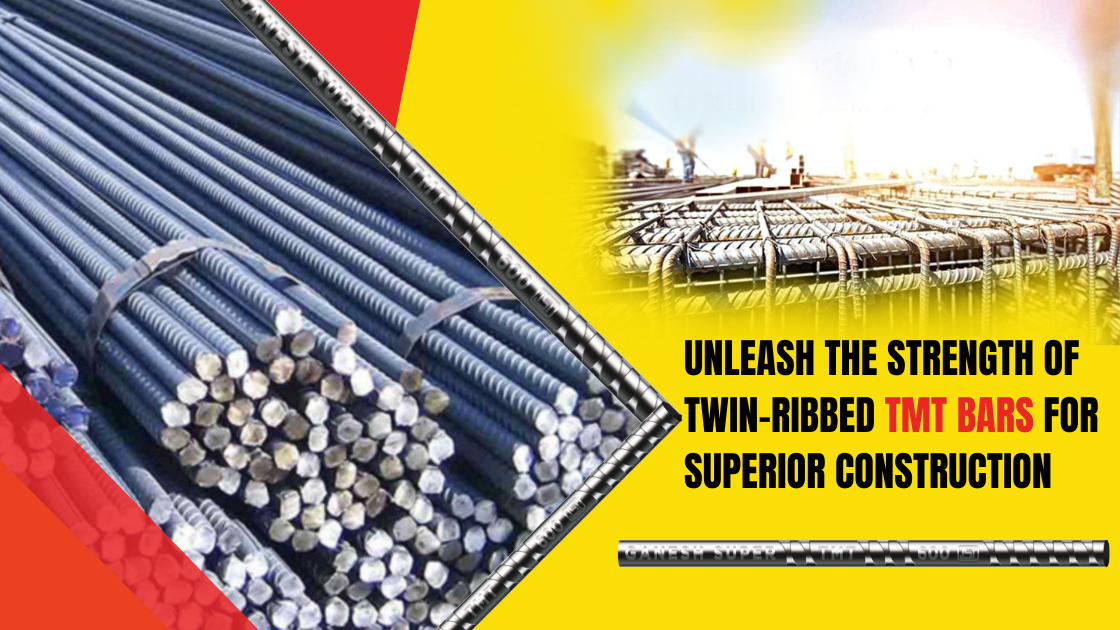Steel, in its many forms, literally holds the construction and manufacturing industries together. Steel, for its unique strength and durability, comes at a price that’s hard to beat.
Steel bars, being essential components for reinforcing concrete structures, require exclusive dealerships and informed sellers to guide and help customers – not just newbies but also those with mid-level experience. A slight miscalculation leading to the wrong choice of these supportive components might cost lives in the future. Any kind of steel bar dealer, therefore, must be well-informed and willing to play the role of a guide while selling the products they stock.
This brings us to the primary question: Do ordinary steel bar dealers carry the same stock as exclusive TMT wholesale dealers? Let’s explore the types of steel bars available in the market to answer that in full. Unless you learn the differences between ordinary steel bars and TMT steel bars, you’d be unable to correctly decipher the importance of going to exclusive TMT wholesale dealers.
Steel Bars: Types and Composition
Steel bars are primarily categorized according to the type of steel used in their manufacturing and the treatments they receive to enhance their attributes. Together, they make each type of steel bar suitable for a particular kind of use.
Ordinary/Mild Steel Bars
Ordinary steel bars, often referred to as mild steel bars, are typically low-carbon steel that is easy to shape, weld, and cut. MS bars exhibit a tensile strength lower than that of TMT bars and are primarily used for non-structural purposes, such as fencing, gates, and other lighter applications, typically those that don’t require very high strength or corrosion resistance.
TMT Steel Bars:
TMT steel bars, too, are made from mild steel apart from carbon steel (higher carbon content for added hardness and strength) and fully killed steel (carbon steel that’s been wholly deoxidized before casting) steel. F-K steel exhibits a denser organization, making it more stable and less ductile though less corrosion resistant than usual Carbon steel.
MS Bars and TMT Bars – Are They Interchangeable?
- MS bars involve a more straightforward manufacturing process involving melting, casting, and rolling. They do not receive the specialized thermo-mechanical treatment of the TMT bars alike. The TMT bars exhibit a much, much higher tensile strength and enhanced flexibility due to the unique thermo-mechanical treatment they receive.
- TMT bars have improved corrosion resistance due to the controlled cooling process during manufacturing, which creates a protective layer on the surface and fights back corrosion. MS bars, on the other hand, are more susceptible to corrosion compared to TMT bars, often requiring additional protective layers to be applied or special maintenance to prevent rusting. Corrosion-resistant TMT bars can help extend the life of a structure by reducing the rate of corrosion right from the time the construction begins.
- TMT bars display excellent weldability and ductility, which allows them to be joined without risks of failure under stress. This is an essential aspect of maintaining structural integrity. MS bars, on the other hand, do not exhibit these attributes, and neither do the TMT bars.
Inventories: How they Differ
The stock carried by construction material dealers almost always varies based on the type of bars they specialize in.
Ordinary Steel Bar Dealers focus primarily on selling mild steel bars with limited grounds for application, compared to TMT bars. As a result, their stocks are relatively more straightforward and may include different gauges and lengths of mild steel bars for lighter and non-structural applications. The inventory may not include a wide range of grades or specialized steel products.
TMT wholesale dealers, on the other hand, shall carry a far more extensive and diverse inventory comprising various gauges, lengths, and grades of TMT bars. This is required to meet the diverse structural needs of building large residential, commercial, and industrial infrastructures. Hence, must have a robust supply chain through a direct relationship with the manufacturers or large distribution networks. Their inventory is also likely to be much larger than that of ordinary steel bar dealers, who are asking for much larger storage facilities with specialized racks to avoid damage from environmental conditions and deformation under pressure.
Choose your TMT Wholesale Dealers Wisely
The key difference lies in the applications these dealers target and the specifications of the products they offer. While mild steel is suitable for everyday use and is less demanding, TMT bars are essential for high-stress structural applications. TMT wholesale dealers typically carry a much broader and more specialized stock to cater to this market. Therefore, while there may be overlap in some of the smaller or more localized dealers’ stocks, the two types of steel dealers cater to distinctly different market segments and hold different inventories.
Ordinary steel bar dealers and TMT wholesale dealers will not carry the same stock most of the time. While ordinary steel bars are suitable for non-structural applications, TMT bars are designed for use in fields that are more demanding and involve high-strength applications.
All these pose a stark difference between these two types of steel bar dealers regarding the range, quality, pricing, and supply quantity they’ll offer.





